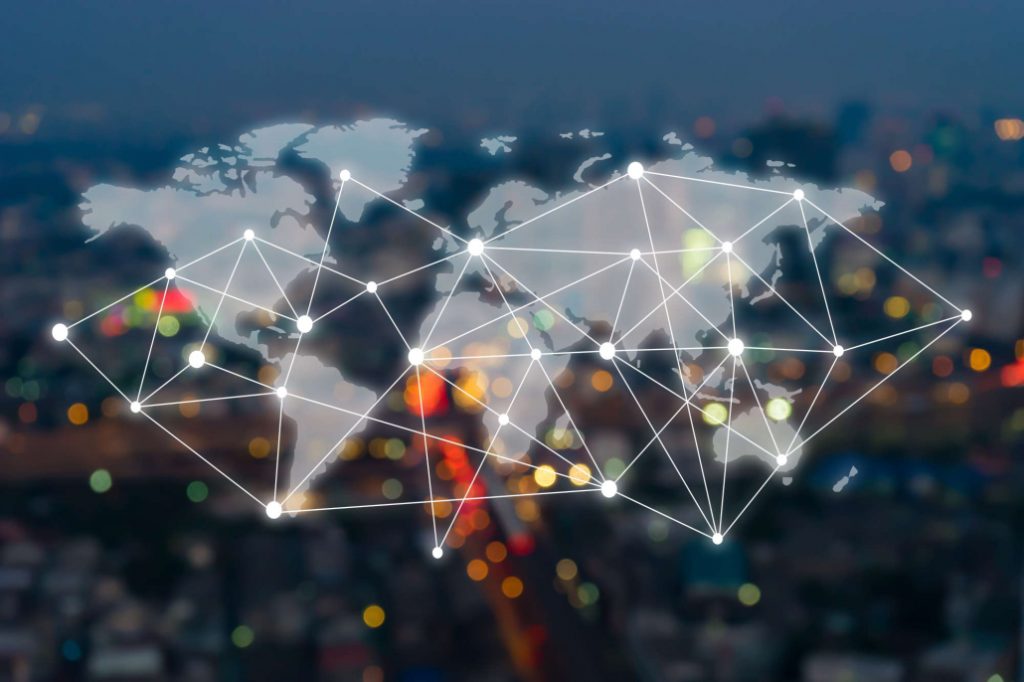Modern society can be illustrated through the concept of the “information society”, one in which numerous economic and social activities take place in accordance with the information that continually arrives in it. The information society is constituted of two key elements: the communicational instruments available and the users. The integration of software and hardware, communications and telecommunications is in the essence of the information society. It offers active participation to individuals, legal entities, state bodies and governments.
On a global scale, around 59% of the population are active on the Internet. Why though? Because the Internet has plenty to offer. Starting from an unlimited source of information, accessible communication instrument, as well as aid in better performances in the school/workplace our day to day lifestyle, has been made much simpler with the appearance of the Internet. Apart from giving us full-on access to information and an advance in further development, it also leaves a positive trail in the field of economics by opening up marketing opportunities and supporting small businesses in need of growth and recognition.
However, only a few can spot the challenges and risks hidden behind our screen. Having access to a free life-altering platform does not mean that you have access to a safe platform. Even though it promotes freedom of speech and openness, no one can protect the users from the act of human rights violation. Going back to the information alternative, it is more often that the approach to information is exploited, causing disinformation. Information can easily be misused by unscrupulous internet users, or discussions on some topics can degenerate into the exchange of offensive pointless diatribes that has nothing to do with real information. The internet can lead people to a state of complete alienation, a universe in which there is a lot of human contacts, but there is no humanity.
It’s simple enough, the greater awareness of the citizens about the events that surround them creates a feeling of greater interest in the impact in the social spheres. This influence is especially crucial in the political sphere. All official information arising from the narrowest political structures of the state (parliament, government …) are directly accessible to all citizens and have equal participatory access to information. The information revolution embodied through easier access to information, greater efficiency of administrative services and increased public participation in decision-making can create the opportunity for direct renewal and strengthening of democratic processes.
As producers and transmitters of information, journalists are at the centre of the information society. Journalism can be perceived as a mode of participation. The expansion of the web and the emergence of social networks have contributed to a profound questioning of the divide between producers and consumers of information as well as to a relative blurring of the boundaries between journalism and communication. Information producers hold the power to inform the general public, however readers have trouble figuring out reliable sources. New forms of media reporting take less account of traditional standards of good journaling practices. Traditional journalism has always implied cultural responsibility of the level to society as a whole. In order to prevent the downfall of the appropriate journalism self-regulatory mechanisms must be implemented, this will not only raise its quality but also control the spread of fake news. This doesn’t count as a restriction to our freedom of expression since it offers protection from hate speech that only causes harm to others.
Since the level of distrust in the media is rising, these are ways in which one can make sure the information you’re reading is correct. Get to know the names behind the publisher, the date as well as if anyone else has shared this type of information. Other approaches are to check the legal notice and the HTTPS protocols. If none of those seems reliable, your reading should come to an end here.
Is there anyone on the higher grounds contributing to the resolutions of these modern-era issues? What can be done to suppress the challenges of fake news without infringing on the freedom of expression? There is a timeline of events in which the European Union commenced to tackle the spread of disinformation and restore credibility online. Today, almost all social networks have agreed upon the Code of conduct, used to answer to the spread of racism and xenophobia online. The idea is that all the IT companies will stick by the code and delete all illegal content spread. The most recent regime applied is the action plan against disinformationadopted in 2018 by the European Commission, which includes several measures and a rapid alert system causing up to 80% of the illegal content to be taken down, from which 70% of those are gone in a 24h period. The Western Balkan countries can be found at a disappointingly low level when it comes to media literacy and trust in institutions related to the media. One suggestion to surpass the challenges of disinformation, without infringing the freedom of expression, is to use all actors available and raise awareness as much as practically possible.
Networks are often characterized by the free side of social ties, relatively easy to create and understood as having defined limits in terms of an obligation. The increase in comfort, speed, and range of services available in the information society means at the same time the breaking down of traditional ethical standards and the loss of anonymity that is so valuable in this European area. By now you have already read of the regulations and initiatives that have been implemented on an EU level, which have resulted in a large step forward in terms of global media protection. Others are the advantages in democracy and the professional improvements that the producers of information ought to consider in order to help maintain trust. Apart from all those, what should be prominent is personal growth and higher understandings in the field. Our future generations should be raised to recognize what is real and not in their surroundings. The adequate development of this new society entirely depends on us. We hold the authority to properly use technology and bolster the ways in which we can all responsibly contribute to a brighter technological future. What is compulsory, is to learn to properly operate with the benefits offered by information technology, especially in the field of strengthening civic self-confidence and confidence in the democratic inclusion of citizens in the system of government. Civil society represents the most important cohesive force in the information society. If proper laws and standards are to be set, the courts step up with legal punishments for those who engage in disinformation, and we exit our bubbles created by the Internet, we will be able to outgrow these virtual scams and allow for people to participate in the society without mischief.








